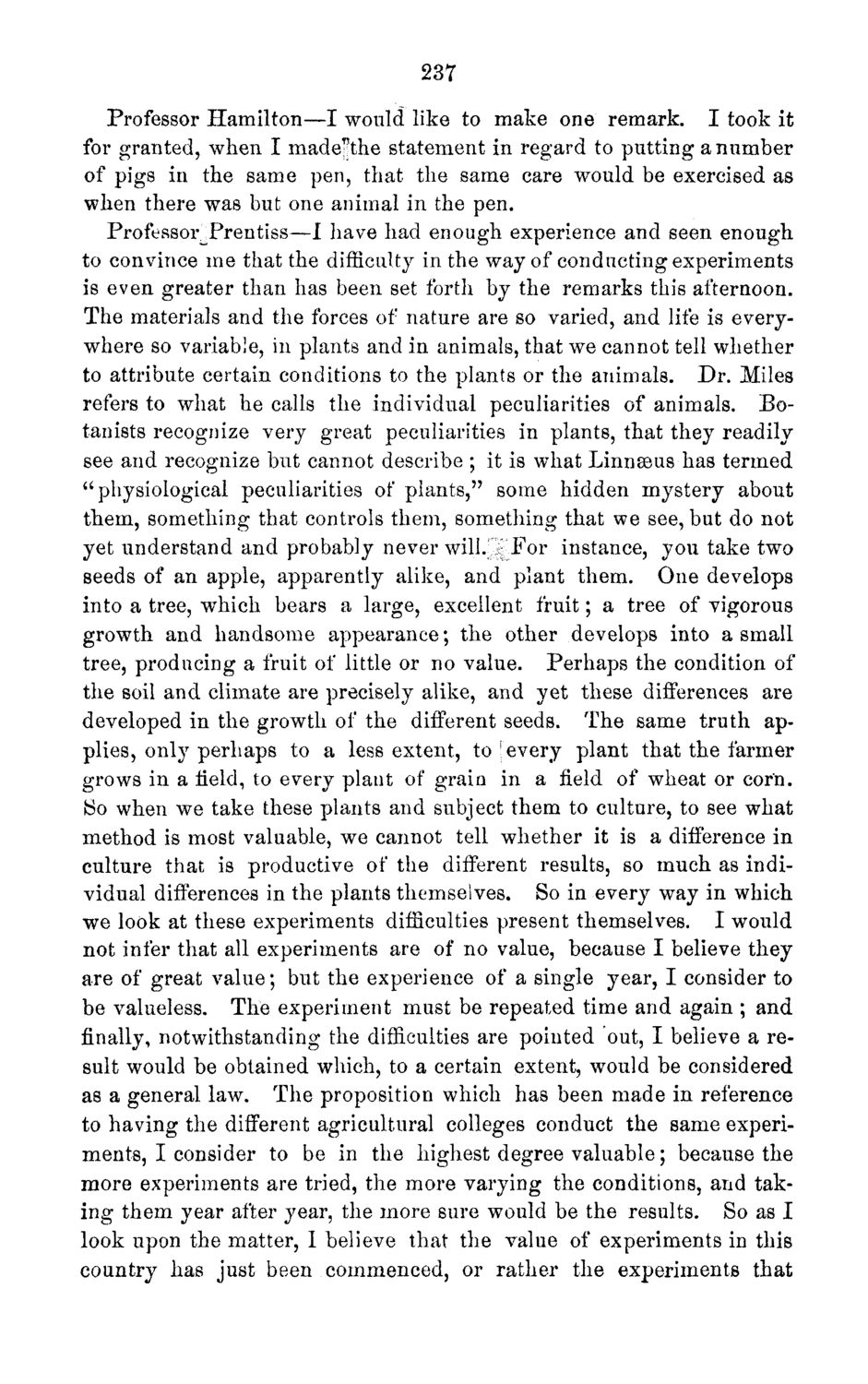| |
| |
Caption: Board of Trustees Minutes - 1871
This is a reduced-resolution page image for fast online browsing.

EXTRACTED TEXT FROM PAGE:
237 Professor Hamilton—I would like to make one remark. I took it for granted, when I madefthe statement in regard to putting a number of pigs in the same pen, that the same care would be exercised as when there was but one animal in the pen. Professor^Prentiss—I have had enough experience and seen enough, to convince me that the difficulty in the way of conducting experiments is even greater than has been set forth by the remarks this afternoon. The materials and the forces of nature are so varied, and life is everywhere so variable, in plants and in animals, that we cannot tell whether to attribute certain conditions to the plants or the animals. Dr. Miles refers to what he calls the individual peculiarities of animals. Botanists recognize very great peculiarities in plants, that they readily see and recognize but cannot describe ; it is what Linnaeus has termed "physiological peculiarities of plants," some hidden mystery about them, something that controls them, something that we see, but do not yet understand and probably never will.3 For instance, you take two seeds of an apple, apparently alike, and plant them. One develops into a tree, which bears a large, excellent fruit; a tree of vigorous growth and handsome appearance; the other develops into a small tree, producing a fruit of little or no value. Perhaps the condition of the soil and climate are precisely alike, and yet these differences are developed in the growth of the different seeds. The same truth applies, only perhaps to a less extent, to 'every plant that the farmer grows in a Held, to every plant of grain in a field of wheat or corn. 80 when we take these plants and subject them to culture, to see what method is most valuable, we cannot tell whether it is a difference in culture that is productive of the different results, so much as individual differences in the plants themselves. So in every way in which we look at these experiments difficulties present themselves. I would not infer that all experiments are of no value, because I believe they are of great value; but the experience of a single year, I consider to be valueless. The experiment must be repeated time and again ; and finally, notwithstanding the difficulties are pointed out, I believe a result would be obtained which, to a certain extent, would be considered as a general law. The proposition which has been made in reference to having the different agricultural colleges conduct the same experiments, I consider to be in the highest degree valuable; because the more experiments are tried, the more varying the conditions, and taking them year after year, the more sure would be the results. So as I look upon the matter, I believe that the value of experiments in this country has just been commenced, or rather the experiments that
| |